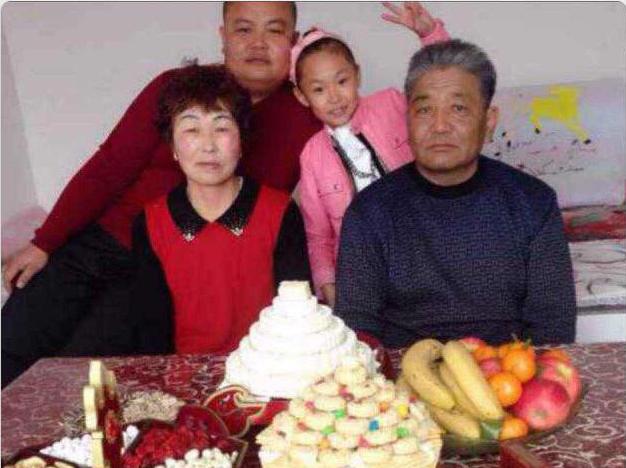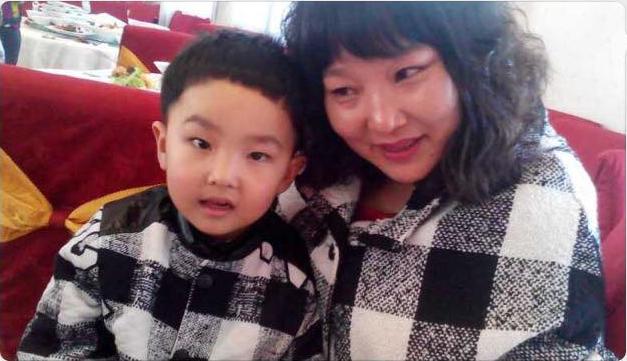As part of the effort to
maintain social stability during
China’s “Two Sessions” ---
annual meetings of the Chinese
People’s Political Consultative
Conference and the National
People’s Congress --- convened
in Beijing, the local Public
Security Bureau of Urad Middle
Banner (“wu la te zhong qi” in
Chinese) in western Southern
(Inner) Mongolia has arrested
and detained more than twenty
Mongolian herders since two
weeks ago. In a message posted
in Mongolian herders’ WeChat
groups by Zou Xinchao, head of
the State Security Squad of Urad
Middle Banner, the herders were
accused of “giving interviews to
foreign news media and assisting
those who have ulterior motives
to frame and denounce the
socialist regime”.
Mr. Saishingaa, one of the most
outspoken herders from
Bayan-Ulaan Som of Urad Middle
Banner, was taken away from his
home by a SWAT team at midnight
on March 4. Saishingaa has been
placed under a 15-day detention
order for “resisting arrest and
providing information to foreign
news media and organizations”.
According to appeal letters and
court documents received by the
Southern Mongolian Human Rights
Information Center (SMHRIC),
44-year-old Saishingaa has been
protesting local officials’
illegal appropriation of his
980-acre grazing land through
the use of a forged document.
Despite years of protests and
lawsuits, the local courts
denied his right to the grazing
land and decided in favor of the
local officials and
appropriators.
In his appeal letter, Saishingaa
states that “local officials are
blatantly violating laws and
creating conflicts between the
herders and the party
authorities by intimidating and
fooling the helpless herders”.
In the latest round of arrests,
two other Mongolian herders, Mr.
Munkh and Ms. Tuyaa were
arrested on March 7 by the local
Public Security authorities
during their protest in front
the Banner Government building.
According to the latest
information received from the
family members and friends,
Munkh has been placed under a
15-day detention order on
similar charges. Tuyaa was
released after a 24-hour
detention.
“At least twenty herders were
arrested in the past two weeks,”
Mr. Zayaa from Urad Middle
Banner told the SMHRIC over the
phone, “Some were released, but
others are still being held at
the Public Security Bureau
Detention Center.”
“Herders have been questioned as
to who wrote the long banners we
used at the earlier
demonstration and who organized
these protests,” Zayaa added.
Since February 23, Mongolian
herders of Urad Middle Banner
have been staging a new round of
demonstrations and sit-ins in
front the Banner Government
building, protesting the local
government officials’ illegal
occupation of the herders’
grazing lands, and demanding
adequate compensation and the
immediate return of their lands.
According to appeals from the
affected communities of Urad
Middle Banner, the herders have
been organizing themselves since
2006. They have petitioned
the authorities multiple times,
demanding an immediate halt to
the illegal land expropriation
and land sales by local
government officials to the
Chinese, as well as the
destruction of the herders’
grazing land by Chinese miners
and military bases.
In November of 2013, a group of
herders’ representatives visited
Beijing and appealed to the
Chinese Central Government about
their grievances and urged the
Chinese State Council Letter and
Visitation Bureau and the
Ministry of Agriculture to
restrain local government
officials and Chinese miners
from illegally occupying their
grazing lands.
Shortly after the herders’
arrival in Beijing, local police
dispatches from Urad Middle
Banner rounded them up and
brought them back. The herders
have since been confined to
their communities and barred
from appealing to higher
government authorities.







 Beyond
Great Walls: Environment, Identity, and Development on the Chinese
Grasslands of Inner Mongolia
Beyond
Great Walls: Environment, Identity, and Development on the Chinese
Grasslands of Inner Mongolia China's
Pastoral Region: Sheep and Wool, Minority Nationalities, Rangeland
Degradation and Sustainable Development
China's
Pastoral Region: Sheep and Wool, Minority Nationalities, Rangeland
Degradation and Sustainable Development The
Ordos Plateau of China: An Endangered Environment (Unu Studies on
Critical Environmental Regions)
The
Ordos Plateau of China: An Endangered Environment (Unu Studies on
Critical Environmental Regions)